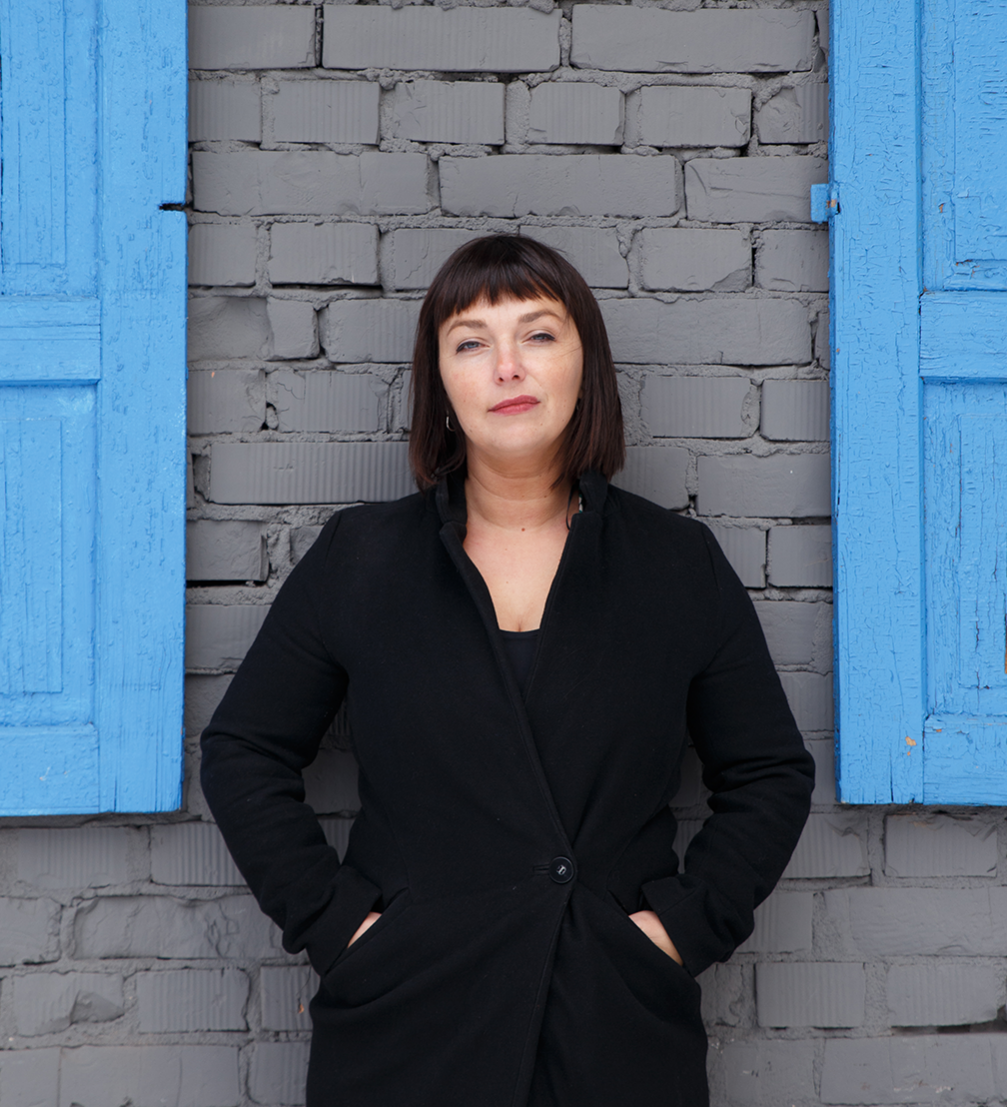
At the beginning of April, the annual Latvian Design Award was awarded to the campaign «#Iamintrovert» — a witty and skilfully developed set of activities that not only popularize Latvian literature abroad but also encourage reflection on shaping the country’s image as such. The creative director of the campaign is Una Rozenbauma, who has been for years successfully combining two professional passions — cinema and advertising. This conversation is about these passions, and Una also explains why honesty is better than pretence, and why humour is better than being too serious.
In some video interview, you mentioned that you couldn’t figure out what to do in the beginning, that you were attracted by many things, but then came the cinema. When did you become interested in advertising?
My career started with directing and filming ads. At some point, I realised that I had to film ads that were sometimes lame or boring. I tried to understand who is responsible for that and found out it to be the creative director. I decided that if I wanted to make cool ads, I should become one myself. I became interested in this profession; besides it is clear that not many people in Latvia can make money only with cinema and make a living out of it. For me, these activities are parallel, and I am very glad about it. Sometimes advertising takes over and cinema becomes neglected or vice versa, but in general, both fields complement each other rather successfully. Advertising provides some kind of grounding and thinking about the audience, which is important to me. Cinema, on the other hand, gives my work a more creative edge.
Which was your first advertising agency?
The one that just ceased to exist — «Mooz». I worked with Ēriks Stendzenieks, who is still my advertising idol. He is one of the few in Latvia who used advertising to change people’s perceptions and the way of thinking to a greater degree than just to make them buy a certain product. This is also in some respect my goal and the reason why I work in advertising and why I like it.
You have worked in many agencies to be able to compare them. Are there more things in common or more things that are different?
Each agency has a completely different character. «Mooz» was the agency oriented towards the creative director, the creatives were gods. In «DDB» creativity is also primary, but at the same time, it is based on the business relationship with the client, the achievement of client’s goals. In «Not Perfect», where I stayed for a short while, everything had to look perfect. In my view, it was more like a design agency. Agency «Vuca», where I work now, is very focused on synergy between all those involved.
Each of them has their own profile, and I think that in each of them I’ve learned what was most valuable to become a better creative director than I was before. When you start and you are given enough power, you don’t really know how to handle it. On one hand, I understand that if you are a boss, you probably won’t be very loved. But nowadays my desire is not to be a boss, but rather a leader who works with others to create wonderful things. With every year I am getting better at this.
I remember that last year you participated in a discussion about women in creative industries. There you took a hard stance on that it is more difficult for them to make a career than it is for men. What has been your experience and do you think this issue is still relevant?
Of course, I have been mobbed a lot. At that discussion Zane [Zane Feifa, «Vuca» co–founder — ed.] and I, it seems, were the only ones who recognized that this problem exists. The rest were saying — well, everything will be fine, everybody understands each other and talks to each other as equals. I absolutely do not believe that, and I know that there is great inequality. To be honest, men in the agencies and positions of responsibility often work as «white males». It is an illusion that nowadays everything is different. At that moment when my opinion gets overlooked because I am a woman, I understand that not much has changed. There is a great saying that men are judged based on potential, women are judged on proven capabilities. It is like that! I have to win three times as many prizes and make much better campaigns than a guy to be rated equally high. This is not equality.
In one of the agencies where I worked, we, the art director and the copywriter, actually did the work of the creative director. At one point I said — if we are doing it, we might as well call ourselves accordingly. There comes the time when it is important to stand up for what you are doing. If you won’t raise your hand and claim what you are entitled to, you will not get it. I would like to encourage this.
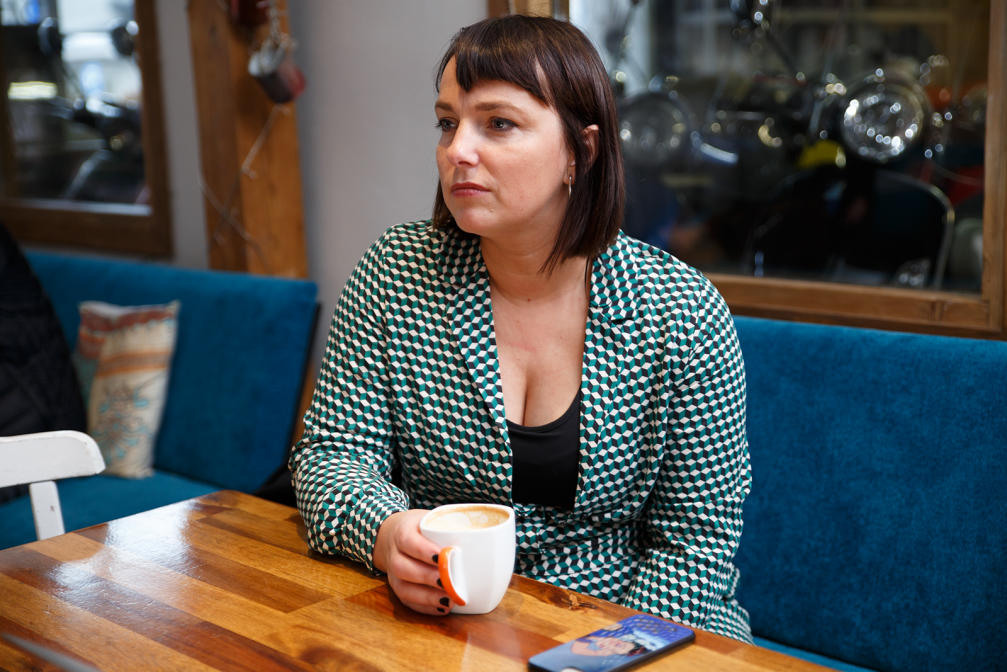
From your recent works, the campaign «#Iamintrovert» has been the most widely renowned. How did you arrive to this positioning, and how would you explain its success?
That concept came not from the way we would like to be perceived, but from the way we are. I think that somehow this is the key to the success of this campaign. It is so honest and very open that it simply disarms with its unexpected truthfulness and oppositeness because we are usually proud of totally different things that we may not possess at all.
Many came to our stand, and the director of the London Book Fair said that introversion is a global trait of writers. I am surrounded by musicians and artists, and I see that they function in the same way. I think that any person who creates something has this moment of introversion.
But super–honest advertising is actually nothing new. When «Volkswagen» tried to conquer the American market with a car that did not meet American standards at that time, with a small beetle, they had a slogan «It’s Ugly, But It Gets You There». At the same time, the first satellite appeared, and they used it in advertising — it doesn’t look that great, but it is functional. In America, there is a car rental company «Avis» that talks about being second in the market and what their philosophy is because of it. That they have to try harder. In fact, they tell all about their positive qualities through the fact that they are not in the first place.
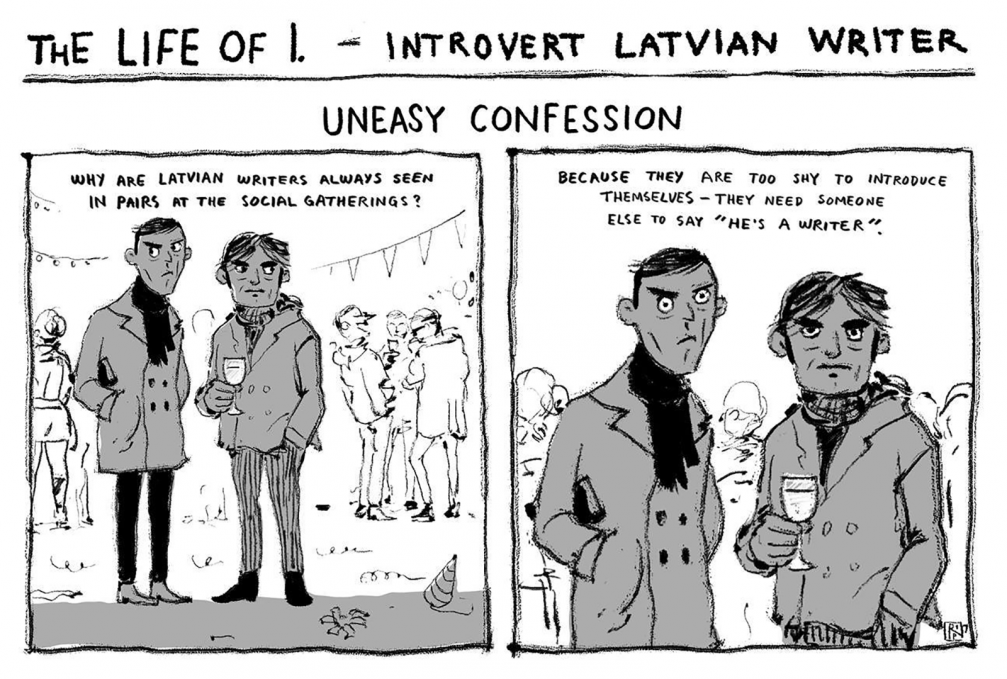
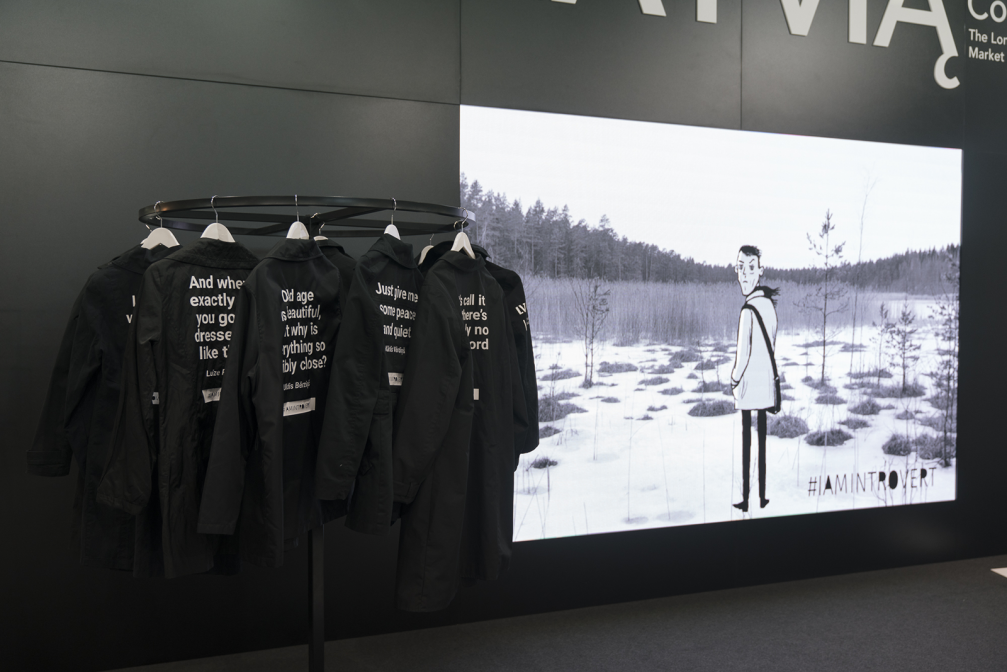
It seems that success of «#Iamintrovert» calls for a reassessment of other attempts to shape Latvia’s reputation and their effectiveness. What is your opinion of the current image of the country, which is largely implemented by «Magnetic Latvia»?
In my opinion, «Magnetic Latvia» brand doesn’t really suit Latvia. Something like that could be said by a big country. I don’t know the reason, maybe it’s a national strategy or a state secret we’re not getting, but until now we have been trying not to stand out by what we are, but to say that we are the same as the rest. This is public communication of an Eastern European country bothered by complexes. The honesty that worked in the case of «introverts» seems crazy, if we think about national communication. On the other hand, if we pretend to be one of the great powers, we will not get the world’s attention, we will only be able to buy one banner in some small Oslo magazine. Communication should be done in such a way that people notice it and pass it on. Arriving in Helsinki, there was a poster saying that it is really awful there and that you’re a real rebel, if you come to Finland at this time of the year. They also have «Very Finnish Problems», like the British have «Very British Problems». They highlight their own peculiarity.
We have nine months of darkness. Then maybe we should talk about that? Maybe we talk to people who don’t like light? We find a way no one has talked about their country.
It requires courage and self–irony…
That’s what I have, and it comes either from the family or from the French culture that I like very much. It is quite typical for the French not to complain, but to find the funny side of their bad luck. Talking about it is both therapeutic for oneself and entertaining for others. By contrast, nothing can be achieved by complaining.
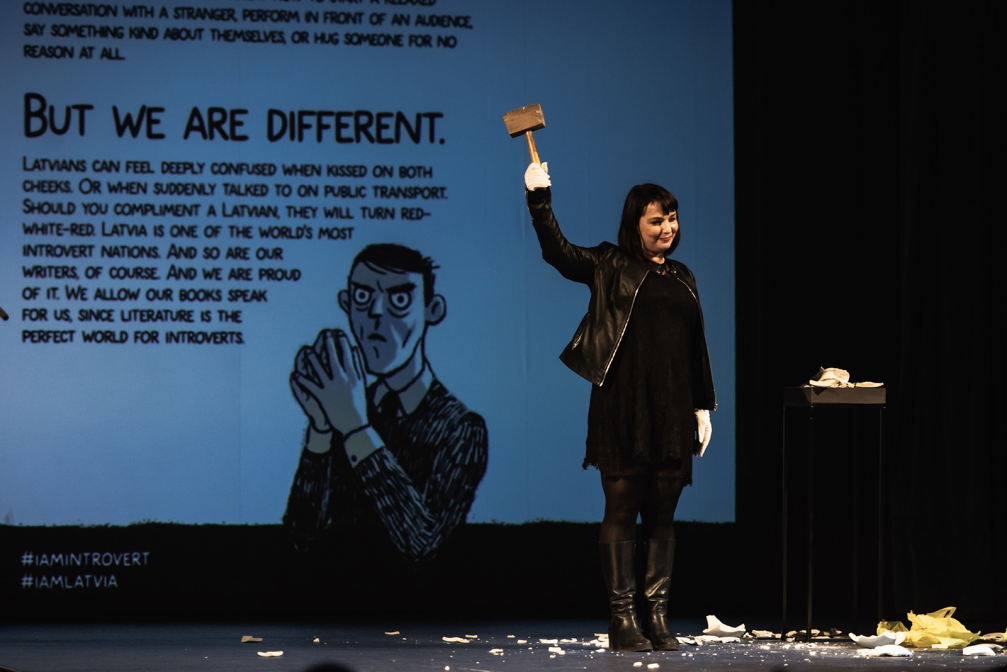
How do you get your ideas, by talking to others, or just by yourself?
Recently I watched a documentary about the graphic designer Paula Scher who works in New York. She has made the «Criterion» logo and a lot of other things. Ideas come to her in taxi. I have it in a similar way. Sometimes it happens that ideas appear already on the way to the client, and then I add them to the presentation five minutes before the meeting. I somehow do not believe in brainstorming during the stage of building up ideas. I believe that when an idea already exists, it can be adorned by everyone, but there must be one idea holder.
How many options do you offer to the client?
To be on the safe side — three. One idea usually is too crazy, one is too ordinary, and then there is the one that is easier to «sell» this way.
Could you say that you have your own creative style that potential clients and partners should reckon with?
I don’t think there is a noticeable style yet. I am not Wes Anderson, who can be recognized from far away. I think it is still developing, and I do not rush myself with that. So far, the result has been more or less dependent on the situation or the idea. But one has to take into account that I do talk back, nothing can be done without it.
You’ve created advertisements for many well–known brands. Which projects have been most gratifying for you?
There have been many things, but advertising has short–term memory, and the most recent things seem to be the most interesting. The «Introverts» campaign is definitely among them. From the last «Vuca» works the Swedbank’s application «Dziedot» was great; it expanded the Song Festival and taught singing to those who didn’t know how. It was a rather complicated process in terms of design and functionality because I had never created a game, but we had a wonderful team.
I remember how after graduating LADC School Reinis Piziks and I worked with [supermarket] «Rimi». We wrote dialogues for two insane dolls — Laser eye and Barcode. We were dying from laughter! For example, cat food advertisement had a verse: «Cats’ time, cats’ time, feed a cat so it’s benign!» When there were problems going on with the lawyer Grūtups, these same characters called somebody named Grūbuts, that looked like a big grain… Now it seems, yes, we used to be punks! I like this playfulness, and it drives me forward. The wonderful thing about advertising is that every day you have the opportunity to be somebody different, to live for different audiences, products. One day you advertise a symphonic orchestra, the next you have to sell a code card. The amplitude is enormous, and it is exciting.
What is the role of the client in this process? How would you describe a successful cooperation?
The best collaboration is with the client who is on the same team. It is similar to a relationship when both are ready to get involved, to compromise and give, not just to demand from each another. Of course, there is a moment when the client is the one who pays, and we have to deliver what was agreed on, and yet… I think that in Latvia the platform «Latvian Literature» is my ideal client because we have symbiosis, things mentioned only in half a sentence are understood and fulfilled.
You are also a lecturer at RISEBA. What are your observations regarding emerging advertising professionals? How important is education in this sector?
In RISEBA advertising course I give lectures on introduction to advertising and explain about the different types of advertising, and students come up with some really interesting stuff. I allow them to introduce their own ideas, and I explain the principles by going through the mistakes. It is quite different from simply dictating the information and telling what is right, what the logo is and what the slogan is. First, a student finds a problem that is important to him or her, then thinks about a solution, product or service, and creates an identity and a campaign for it. We also look at different examples.
The most important thing in the learning process is not to lose curiosity. Our educational system totally undermines it and tries to ensure that all children’s artworks are similar from the beginning. Despite the school, I would say that you should consider oneself as a full–fledged personality and stand up for your opinion. Clearly, education is important, but I don’t think that there is one right way. There are many ways. One can also not study anywhere, apply to be an assistant to somebody and become as cool as those who graduated from big advertising schools. Or one can graduate from those, and work as a waitress or waiter. Although it is not a bad job, I did it for quite some time, it teaches you to know people.
What would you recommend to those who are still making their career?
Ten years ago, I myself lacked the courage to say what I thought. Don’t express your idea just once and then wait that someone will refine or notice it, but say it three times and make sure that you are heard. And that not only one person, but at least two people have heard you. In creative work, it is important that afterwards you can say — I did this. It is not typical for women in particular. I read in one article that if a woman came up with a project, generated everything, she says — we did it. If a guy was in the third row and made the design, he says — I came up with it. I have learned to stand up for my work because no one else will do it in my place. Most are willing to stand behind the cool ideas, projects. But, if in the future you would like to be, for example, not a project manager, but rather a strategist, it is important to say that you were the author of this strategy.
Seven years ago, your first short film «The Window» came out, and you were both the director and the screenwriter. I understand that now you are working on your first full–length feature film «Komunalka». Would you please tell more about it?
I wanted to make a full–length movie about a topic that I know best, and that would be interesting to others as well. I remembered that in my childhood I was living in a communal apartment and that from today’s perspective there were so many strange things. When I say that I’ll make a movie about a communal flat, everyone has their own story. So, I just asked on Facebook and Twitter about what people remember. I collected an incredible amount of hilarious, unbelievable episodes.
«The Window» is very ethereal, there is hidden humour in there, but I realised that I wanted to make a comedy, even though it is a super–complicated genre, probably a lot more so than a drama or a thriller.
In Latvia I miss a bit of laughter and fun. The rom–com «Homo Novus» proves that people were longing for something positive. I think that art films shouldn’t be gloomy and only about suffering, even though you can look at it with some laughs.
You mentioned «Homo Novus», it was made within the project «Latvian Films for Latvia’s Centenary», which has just ended. What do you think of this initiative and whether any of the films were particularly memorable?
I think Dace Melbārde is one of the best culture ministers Latvia ever had because she knows and understands different fields of culture and fights for them. About the films — of course, out of 10 or 20 some come out as brilliant, but there is also «The Foundation of Criminal Excellence» («Kriminālās ekselences fonds» — ed.) which was not a «centenary film», and some others. The biggest advantage of this initiative is that the entire industry comes to life. More people make costumes, focus on cinema music, write screenplays. There is its craftsmanship. In cinematography team is a huge necessity. The better each person does his or her job, the quicker the movies come out, and their quality is better.
I really liked «Homo Novus», it is optimistic and it gives hope. However, a number of «centenary films» still look like they were created because Latvian directors didn’t have money for a psychotherapist. They have so many internal battles that the viewer comes out completely disturbed. Art house cinema and cinema meant for the viewer are very interwoven here. If these genres were separated and the viewer could understand what is he buying the ticket for, Latvian cinema would no longer be perceived as gloomy and incomprehensible. I would like to challenge that perception.
In an interview for FOLD, British advertiser Dave Trott said that creative personalities have the power to change things in the world that make them angry. What problems would you like to solve, if you had the opportunity?
I would like to diminish the chasm between Latvian Latvians and Latvian Russians. If I could really integrate into society people with special needs. And homosexual people. Then I would be happy about what I did.
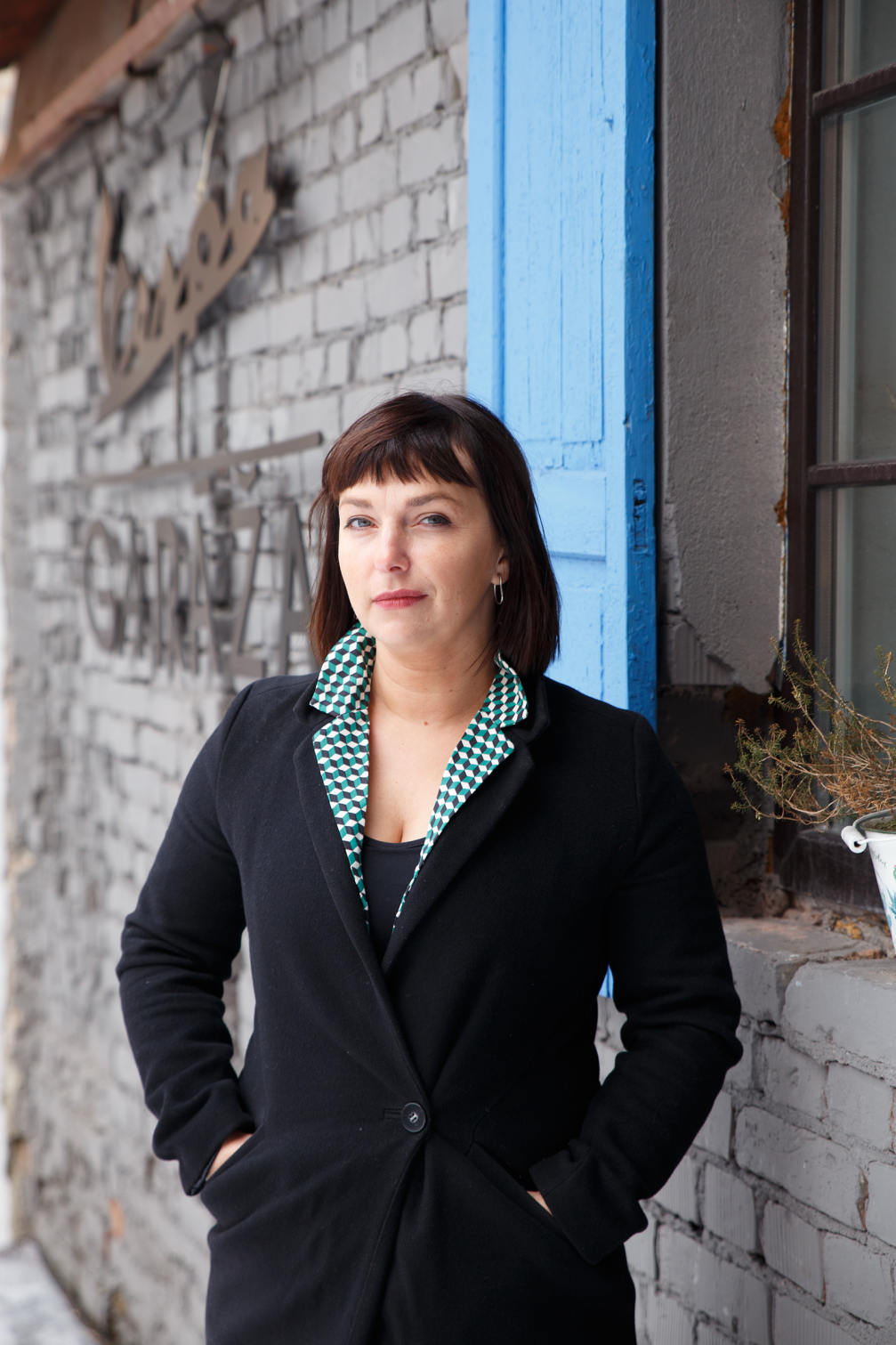

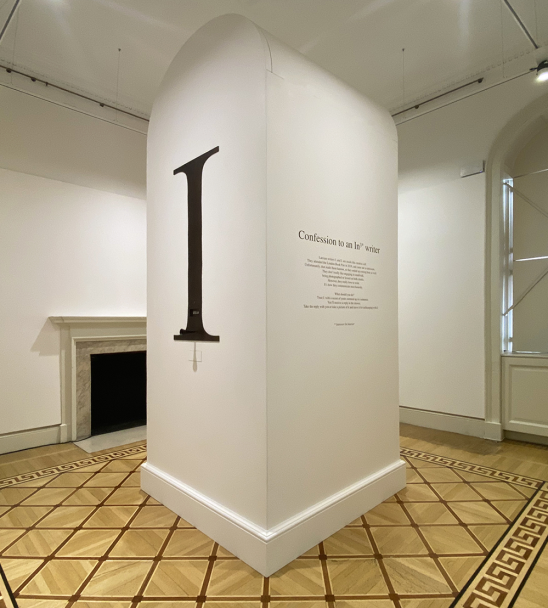
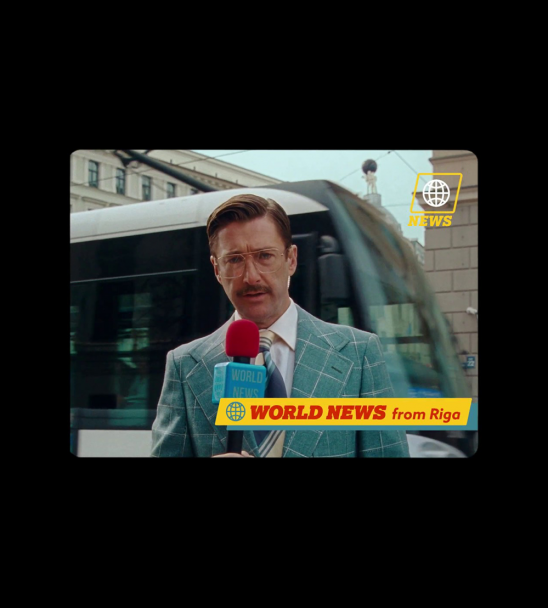
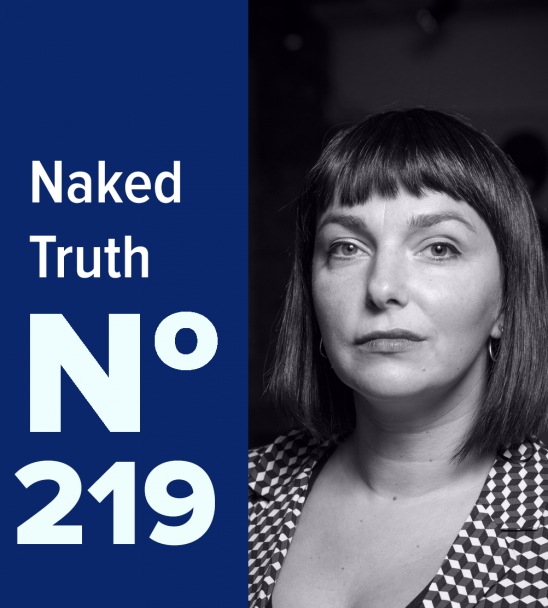
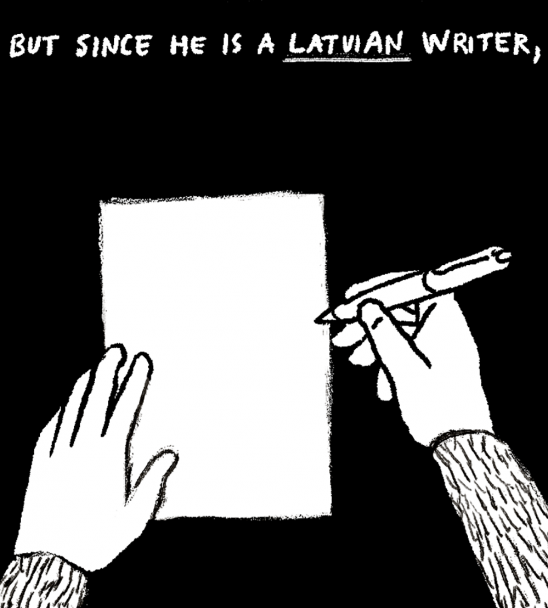
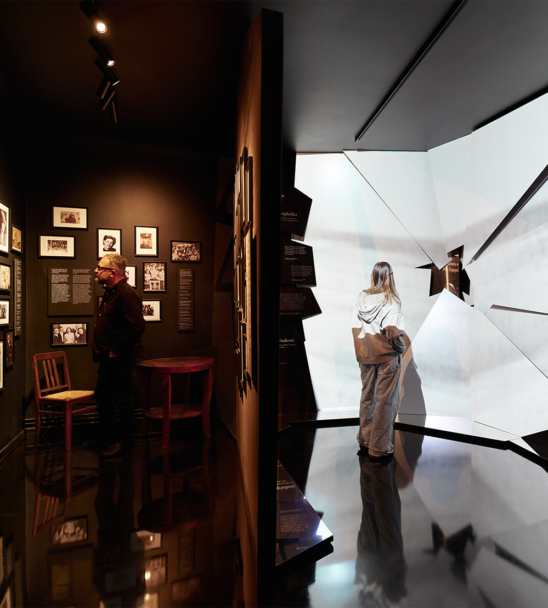

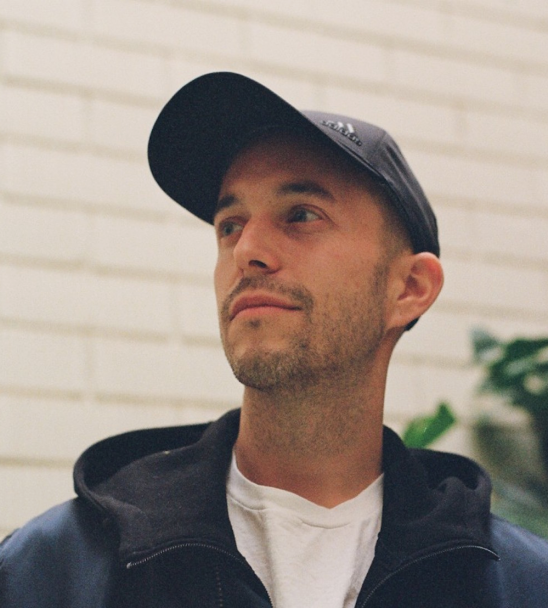

Viedokļi